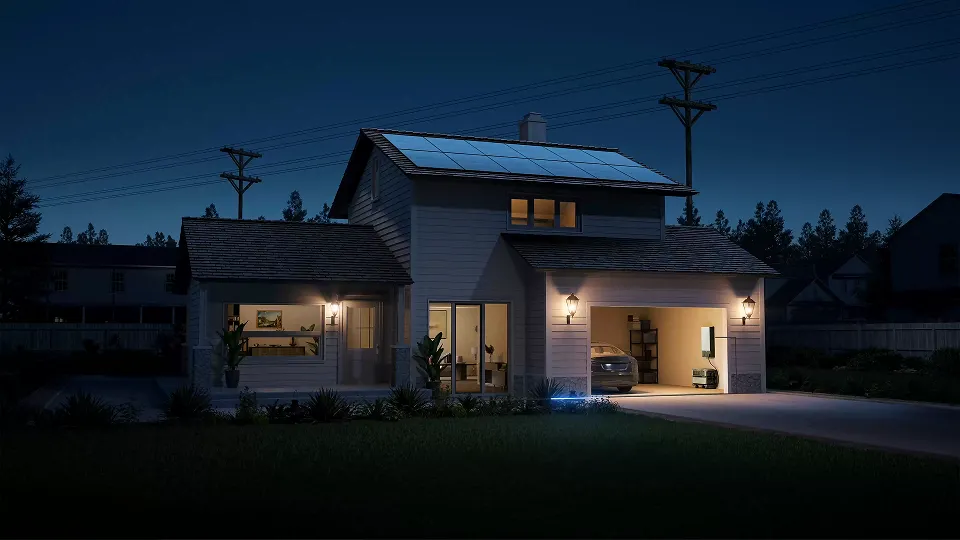How to Prepare for Power Outages During Canada Weather Warnings
Canada’s climate is as breathtaking as it is unpredictable. From glowing northern auroras to fierce snowstorms and humid summer squalls, the nation’s weather can shift from serene to severe in a heartbeat. While these extremes are part of what makes Canada unique, they also bring real challenges, and power outages are among the most disruptive. Preparation isn’t just a precaution; it’s a responsibility that protects both your home and your loved ones when Environment Canada issues a major weather warning.
This guide explains the different types of Canadian weather alerts and outlines practical steps, smart safety measures, and essential backup power solutions to help you stay connected, comfortable, and secure through any outage.
What Are Canada’s Weather Warnings
Understanding the official weather warnings issued by Environment and Climate Change Canada (ECCC) is the first step in staying safe during severe conditions. These alerts, developed by expert meteorologists, provide accurate and timely updates designed to help Canadians prepare and respond effectively before weather-related emergencies strike.
Canadian Weather Warning Types
ECCC issues a variety of alerts for weather hazards across the country, including blizzards, extreme cold, freezing rain, severe thunderstorms, and tornadoes. Each type of warning plays a critical role in shaping how you plan and protect your household during changing conditions.
Meaning of Different Weather Alert Levels
Environment Canada uses a tiered alert system to convey the seriousness and likelihood of a weather event:
Special Weather Statement: Issued for unusual or changing weather conditions that could become hazardous but aren’t yet severe enough to warrant a watch or warning.
Weather Watch (Yellow): Indicates that conditions are favourable for severe weather to develop, such as a blizzard or thunderstorm. This is the time to stay alert and prepare your emergency kit before conditions worsen.
Weather Warning (Red): An urgent alert that severe weather is imminent or already underway. Take immediate action to protect yourself, your family, and your property.


How to Access and Track Official Weather Warnings
Staying informed in real time is essential during severe weather. You can monitor official warnings through:
The Canada.ca/weather website.
The WeatherCAN mobile app, which provides location-based alerts.
Local news, radio, and television broadcasts for regional updates.
The Alert Ready public alerting system, which delivers urgent notifications directly to your mobile phone, TV, or radio.
How Environment Canada Weather Warnings Help You Prepare for Emergencies
Weather warnings from Environment and Climate Change Canada (ECCC) are far more than simple forecasts, they are life saving tools designed to help Canadians prepare, act, and stay safe when severe weather approaches.
Providing Early Warnings of Potential Risks
When a Blizzard Warning hits the Prairies, an Extreme Cold Warning is issued for the Maritimes, or hurricane remnants weather threatens coastal areas, that alert gives you valuable lead time, often between six and twenty-four hours. This window allows you to gather essentials such as non-perishable food, fuel up your vehicle, and make sure your home backup power system is charged and ready to keep your household running during potential outages.
Guiding Protective and Preparedness Actions
Each warning type calls for specific safety actions. A Tornado Warning means you should take immediate shelter in a basement or enclosed interior room, while a Hurricane Warning on the Atlantic coast signals the need to secure outdoor furniture and prepare for extended power interruptions. Recognizing these distinctions helps ensure a quicker, safer response.
Reducing Overall Safety Risks During Emergencies
Following the guidance provided in ECCC warnings can greatly reduce your safety risks during severe weather. By preparing for potential blackouts especially during winter, keeping an alternative heat source ready, ensuring communication devices are charged, and maintaining access to essential supplies, you can prevent a temporary power outage from turning into a serious emergency.
Power and Safety Tips for Canada Weather-Related Blackouts
A sudden power outage can quickly turn a comfortable home in Vancouver, Toronto, or anywhere across Canada into a challenging environment. Following these key safety and preparedness tips will help keep your family safe, warm, and connected when the lights go out.
Create a Family Emergency Communication Plan
Make sure everyone in your household knows how to reach one another if cell service becomes unreliable or an evacuation is necessary. Designate an out-of-province contact, it’s often easier to connect long-distance during local emergencies. Review and update your plan regularly, just as you would check the latest weather warnings.


Check Electrical Safety Before and After Power Restoration
Before a major storm, unplug sensitive electronics to protect them from power surges. When electricity returns:
Turn off large appliances and lights before utility crews restore service to prevent sudden surges.
Wait a few minutes after power is back before reconnecting devices, and plug them in one at a time.
Keep Communication Devices Charged and Accessible
Your phone is your lifeline for official updates and emergency alerts. Keep phones, tablets, and power banks fully charged, especially when a Weather Watch is issued. For longer outages, a portable power station can keep devices running for several days and ensure you stay connected when it matters most.
Maintain Safe Home Heating and Ventilation
During a harsh Canadian winter blackout, staying warm safely is essential. Never operate gas-powered generators, barbecues, or camping stoves indoors or in attached garages, as they can produce deadly levels of carbon monoxide. If using a portable heater, ensure the area is well-ventilated and that a battery-powered carbon monoxide (CO) detector is installed and functioning properly.
Why a Whole Home Battery Backup Is Crucial During Weather-Related Blackouts
While candles and flashlights offer temporary relief, they can’t power your furnace, refrigerator, or vital medical devices. During prolonged blackouts caused by severe weather, such as coast-to-coast ice storms or summer heatwaves, a whole-home battery backup becomes essential for maintaining safety, comfort, and continuity.
Reliable Power Supply When the Grid Fails
When powerful storms or freezing rain bring down power lines across Eastern Canada, a home battery backup system automatically takes over. This seamless transition keeps your furnace running, prevents frozen pipes, and ensures your refrigerator and communication devices remain operational. It’s a safeguard that maintains normalcy when the grid goes dark.
Protecting Appliances and Data from Power Surges
Weather related outages often come with sudden power surges, particularly when damaged lines reconnect or the grid struggles to stabilise after a storm. A reliable home battery backup system acts as a buffer, isolating sensitive electronics and essential home systems from these dangerous voltage spikes, preventing costly damage and data loss.


Choosing the Best Home Portable Power Station for Reliable Backup Energy
When Extreme Cold, Blizzard, or Freezing Rain Warnings are issued by Environment Canada, the power grid becomes especially vulnerable to fallen trees, ice coated lines, and storm related damage. In these moments, having a high output, long lasting power source is essential to keep your heating, refrigeration, and communication systems running smoothly.
The EcoFlow DELTA Pro Ultra Whole-Home Backup Power is purposefully built for Canada’s toughest conditions. With its impressive power capacity and sustained output, it can support major household appliances, heating units, and electronic devices during extended blackouts. By keeping your home warm, connected, and safe through harsh weather, the DELTA Pro Ultra stands out as a reliable, future-ready investment for year-round energy security.
Long-Term Benefits for Energy Independence and Sustainability
Beyond providing peace of mind during emergencies, a whole-home battery backup delivers lasting value. Pairing a system like the EcoFlow DELTA Pro Ultra with solar panels boosts your energy independence, reduces reliance on the grid, and helps you take advantage of off-peak energy rates. It’s a smart, sustainable step toward building a more resilient and eco-conscious home, an increasingly important goal for households across Canada.
Conclusion
Power outages are an inevitable part of living in Canada’s dynamic climate, but being prepared can make all the difference. By staying informed through Environment Canada’s weather warnings, maintaining a clear family safety plan, and investing in a dependable backup power system like the EcoFlow DELTA Pro Ultra, you can turn a disruptive blackout into a manageable event. Don’t wait for the next storm alert, take proactive steps now to keep your home safe, comfortable, and powered through every season.
FAQ
How does Environment Canada issue weather alerts?
Environment and Climate Change Canada (ECCC) issues weather alerts around the clock through multiple channels, including the Canada.ca/weather website, the WeatherCAN mobile app, and the Alert Ready system for the most critical emergencies, such as Tornado Warnings. Each alert is classified as a Special Weather Statement, Watch, or Warning, depending on the severity and likelihood of the event.
What should I do during Canada’s extreme cold weather warnings?
When an Extreme Cold Warning is issued, your top priority should be safety and warmth. Limit outdoor exposure and cover all skin, as frostbite can develop in just minutes. Dress in insulated layers with a windproof outer shell, and keep your home well-heated by sealing drafts and conserving energy. Check in on vulnerable neighbours and family members, especially seniors. Finally, keep your emergency kit and backup power source ready, since extreme cold can strain the grid and cause unexpected power outages.
Do I need a whole-home battery backup for winter blackouts?
Yes, a whole home battery backup is one of the most reliable solutions for Canadian winter power outages. Unlike fuel-powered generators, which can be difficult to refuel during storms and pose carbon monoxide risks, a system like the EcoFlow DELTA Pro Ultra operates safely indoors. It can keep essential systems such as your furnace, sump or well pump, and key appliances running smoothly during prolonged, freezing blackouts, ensuring comfort, safety, and peace of mind when the grid goes down. Additionally, building a home battery backup system allows you to customize your energy needs, ensuring that your most critical devices stay powered when you need them most.